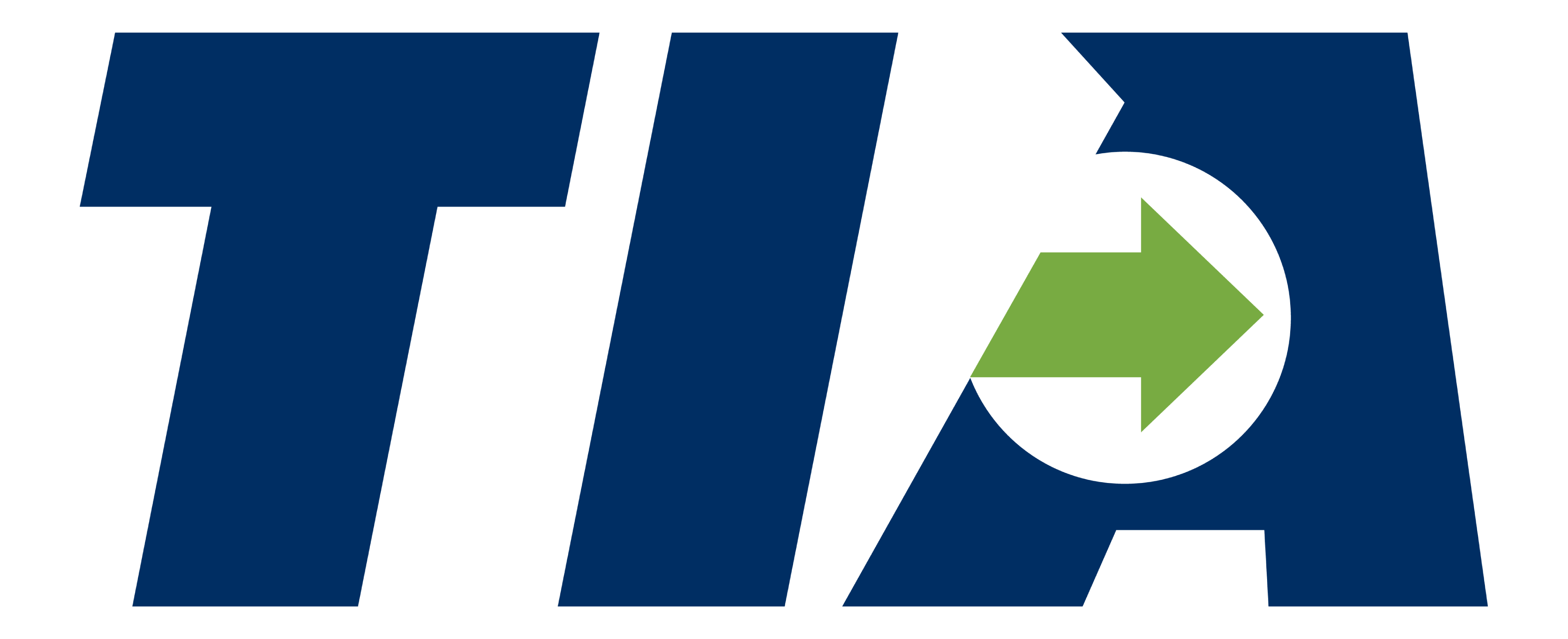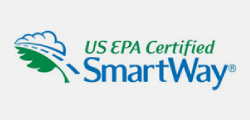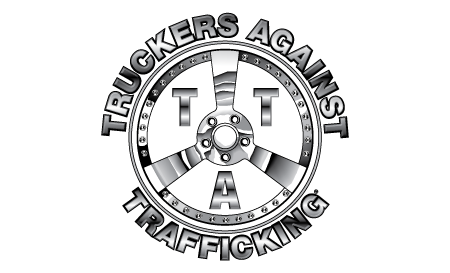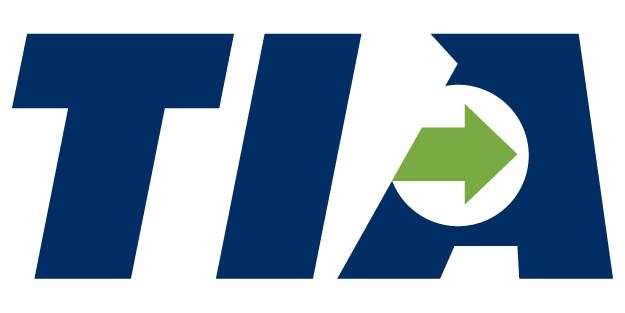Attention
2024 CTB Course & Exam Policy Update:
The Transportation Intermediaries Association Institute for Research & Education (TIAIRE) continues to support the industry by offering first-class education to our members and the industry at-large. The Certified Transportation Broker (CTB) industry designation, the only certification offered for the freight brokerage industry, has recently undergone several policy changes that will affect the TIA Membership. Please read through those changes below, and if you have any questions, please reach out to TIA Education Staff at [email protected].
CTB Credit Recommendations: We are proud to announce that the American Council on Education (ACE) has recommended the CTB course for 6 undergraduate semester hours under the following course topics: Business Fundamentals and Transportation Delivery Systems. This significant recognition highlights the quality and value of TIA's educational offerings for the transportation industry.
Students who graduate with the CTB Designation in April 2024 will be able to use their credit recommendations as semester hours towards a 2-year or 4-year undergraduate degree in Supply Chain Management via Credly. Students who gained the CTB Designation prior to 2024 will not be eligible to receive undergraduate semester hours.
Exam Integrity: To continue to protect and provide integrity to the CTB exam process, students will be required to take all future exam sections through our new LockDown Browser service provided by ProctorFree. Each student will be required to follow the steps outlined in the CTB course to meet these new security requirements, including:
- Identity Confirmation (requires a Government Issued ID)
- Live Proctoring services (require a functioning webcam)
- Computer/Laptop that meets outlined minimum technology requirements
Course Registration: To ensure that students are receiving the support and study materials to be successful on the CTB exam, students will be required to purchase the Online Study Course (OSC) to also register for the exam sections needed to obtain their CTB designation.
- First-time Students: Students are required to purchase the OSC and three sections of the exam during the initial trimester of enrollment.
- Returning Students: Students who failed a previous section of the exam will be required to purchase the OSC at a discounted rate, as well as the individual sections of the exam needed to obtain their CTB designation.
TIAIRE and TIA Education Staff strive to provide first-class education that meets rigorous review standards set by higher education professionals. The changes above allow TIAIRE to continue to improve TIA Education so that all TIA members can be confident that they are receiving accurate, up-to-date, and timely information that will help them run profitable and ethically run businesses.
Click here to find out more information about CTB Grading Policies.
As always, if you have any questions please reach out to us at [email protected].
Transportation Intermediaries Association Institute for Research & Education Mission Statement:
Since 2002, the Transportation Intermediaries Association Institute for Research & Education (TIAIRE) has been recognized as the trusted source for professional education within the third-party logistics industry. TIAIRE provides members and non-members within the third-party logistics industry first-class education that allows them to run ethical, profitable, and scalable businesses. TIAIRE will continue to expand the understanding of the role transportation intermediaries play as the center of the supply chain.
Career-technical/Non-Degree School Library Resource Policy
Curriculum Policy
Distance Education Policy
Powers, Duties, and Responsibilities
Recruitment & Admissions Policy
Student Complaint Form
Career-technical/Non-Degree School Library Resource Policy
Purpose
It is the purpose of this policy to establish the principles by which the Transportation Intermediaries Association Institute for Research & Education will assess, procure, provide, and maintain electronic resources for it’s Online Member Resource Library. It is the goal of the Association and TIA Education Staff to support fully the instructional and research programs of the Association and the Transportation Intermediaries Association Institute for Research & Education by providing access to information through the teaching, acquisition, organization, and preservation of information resources in all formats to the Transportation Intermediaries Association Institute for Research & Education’s students, the Association’s membership, and the 3PL Brokerage industry. The E-Resources and collections will support this mission by adherence to the following guidelines.
Collection Development Principles
The E-Resources and collections will follow the general collection development policies of the Transportation Intermediaries Association Institute for Research & Education as a whole. In brief, the following criteria will influence all collection development decisions for new resources:
Content & Curriculum
- Instructor and/or committee research interests
- General Association goals
- Use of online resource library materials
- Content value of online resource library materials
Under the general collection development guidelines, it is the Transportation Intermediaries Association Institute for Research & Education's mission that the E-Resources and collections should meet the following goals:
- Provide materials in useful, accessible formats that support the programs of the Transportation Intermediaries Association Institute for Research & Education
- Provide access to materials and resources that fulfill the research requirements of instructors, TIA Education Staff, and the Transportation Intermediaries Association
- Provide materials and resources that foster the ethical and business qualities encouraged by the Transportation Intermediaries Association Institute for Research & Education, including business growth, transportation industry ethics, and strategies for profitability, as well as recreational reading
Resources & Access
The Transportation Intermediaries Association Institute for Research & Education provides access to a variety of materials, including industry PDFs, webinar recordings, Virtual Instructor-Led Training course materials, PowerPoint Presentations, and eBooks. The online member resource library will strive to provide access to non-printed materials relevant and useful to members, TIA staff, and students. These may include recorded content, industry PDFs, online book collections, and more. The same principles of selection and assessment will apply to these materials as to all other library collection materials.
Access to the online member resource library materials provided by The Transportation Intermediaries Association Institute for Research & Education is limited to current members of the Transportation Intermediaries Association. Users both on and off-campus will be required to log in with their TIA-provided User ID and password. Users must follow 'Fair Use' as outlined in U.S. Copyright Law and provisions of license agreements with all materials provided. Online materials obtained must be used for personal, non-commercial purposes. Improper use generally includes, but is not limited to: excessive use, printing numerous copies of a single article, or publishing articles made available through the databases. Unauthorized and improper use of online databases and other online resources provided by The Transportation Intermediaries Association Institute for Research & Education can result in access revocation.
Non-member Access
Non-members of the Transportation Intermediaries Association will have access to specific course materials as part of their Transportation Intermediaries Association Institute for Research & Education Learning Management System access.
If any student or association member does not have access, they should contact the The Transportation Intermediaries Association Institute for Research & Education team for assistance.
For questions about online resources use or issues, contact the TIA Education Department at [email protected] or (703) 299-5700.
Acquisitions
Under The Transportation Intermediaries Association Institute for Research & Education's general collection development policy, the Education department will make selection and deselection decisions based on curriculum and research needs; budgetary restrictions and maintenance costs; resource overlap; content value; accessibility and ease of use; and any other criteria deemed impactful to a resource’s use. As with all other library resources, the TIA Education Staff actively seek suggestions for additions to the E-Resources and collections from members of the Brokerage community. TIA Education Department Staff will seek recommendations from students, instructors, and association members. However, the overall responsibility for acquisition and deselection decisions rests in the hands of TIA Education Staff, and is sometimes approved by the TIA Education Committee and/or TIA Foundation Board on a case-by-case basis.
As part of its ongoing efforts to procure the best resources, the online member resource library will undertake trials of new electronic resources in order to evaluate them prior to purchase. During such trials, the TIA Staff will make efforts to gather feedback from instructors, students, and members on the resource’s worth to these audiences and potential researchers. The TIA Education Staff will consider this feedback as part of the resource’s evaluation for purchase. The library will not undertake a trial for a resource unless there is an intention to consider it for purchase. Responsibility for decisions of which trials to undertake will rest on TIA Staff, including the TIA Director of Education, Vice President of Meetings & Education, and in some cases the President & CEO.
Security
The Transportation Intermediaries Association Institute for Research & Education online member resource library materials are compliant with the Association’s policies on accessing these materials, including the limitations for access and restrictions for computer, network, and wireless use.
Contact
TIA Education Department: [email protected], 703-299-5700
TIA Education Manager, Anthony Mascarenhas: [email protected], or 571-982-5070, Ext 250
TIA Director of Education, Jonathan Baker: [email protected], or 571-982-5205, Ext 257
TIA Vice President of Meetings & Education, Cindy Amos: [email protected], or 703-299-5710
Curriculum Policy
Purpose
Transportation Intermediaries Association (TIA) Institute for Research & Education aims to offer a broad and balanced curriculum to all interested students who enroll, ensuring equal opportunity to learning to all, with appropriate levels of challenge and support. The curriculum at Transportation Intermediaries Association (TIA) Institute for Research & Education also aims to:
- Support and enhance the 3PL Industry’s core values of transportation business ethics
- Promote a positive attitude towards learning through a growth mindset
- Instill confidence and preparedness in new hires and new entrants into the industry
- Enable all students to develop relevant knowledge, understand concepts and acquire skills needed for their careers
- Offer a full range of subject choices to all students interested in learning more about the brokerage industry
- Provide in-depth, challenging learning
Legislation and Guidance
This curriculum policy is reflective of the requirements needed to keep all Transportation Intermediaries Association (TIA) Institute for Research & Education programs in good standing in regards to research, content, and review guidelines.
Roles and Responsibilities
Director of Education
The Director will monitor the effectiveness of this policy and holds the respective
Education Manager and other TIA Education staff to account for its implementation.
The Director, with the support of Vice President of Meetings & Education will also:
- Ensure a robust framework is in place for setting curriculum priorities and aspirational targets for improvement
- Ensure enough instructor-led time is provided for live, online courses to cover the necessary curriculum for that specific subject
- Ensure accommodations are provided for students with different abilities and needs, including those with special educational needs
- Participate actively in decision-making about the breadth and balance of the curriculum
Education Manager
The Education Manager, along with the Education Specialist (where appropriate) are responsible for ensuring that this policy is adhered to, and that:
- All subjects which the institute chooses to offer, have aims and objectives which reflect the aims of the industry at large and indicate how the needs of individual students will be met
- The amount of time provided for completing the subjects of the curriculum the institute chooses to offer is adequate and is reviewed by the Director is conjunction with the Vice President of Meetings & Education
- They manage requests to withdraw students from curriculum subjects, where requested by students/managers/companies
- The Director is fully involved in decision-making processes that relate to the breadth and balance of the curriculum
- The Director is advised on budgetary targets in order to make informed decisions
- Accommodations are offered to students with different abilities and needs
Curriculum
Aims, Principles and Values
The Transportation Intermediaries Association (TIA) Institute for Research & Education curriculum provides opportunities for prospective and existing students to learn, achieve and thrive. Through our rich and broad offering of subjects, students will acquire skills including:
Ethics in transportation, leadership, finance, modes (Intermodal, LTL, Temperature Control, etc.), sales, marketing, and management.
As a certified postsecondary school through the State Council of Higher Education for Virginia (SCHEV), we are committed to ensuring we:
- Provide an unpressurised, but challenging and engaging learning environment, based around the interests of the student
- Have a curriculum broad and enriching in its coverage and scope
- Provide opportunities to experience the enjoyment and stimulation of learning and to make progress
- Enable students to see professional learning as an enjoyable lifelong process
- Enable students to make constructive choices throughout their careers in order to achieve economically and personally
In order to achieve the aforementioned commitments:
All students are given equality of opportunity in learning by providing a curriculum that meets the needs of every student in a relevant, flexible and responsive way, so that students can:
- Take an active part in their own learning and continue to be lifelong learners
- Be engaged in making decisions about their own learning;
- Use technology effectively, efficiently and ethically as a tool
The curriculum offered builds on a student’s strengths, interests and experiences inside the 3PL industry, and equips them with the skills to become confident and effective employees, so that they can:
- Be engaged in making decisions about their own future professional learning
- Communicate effectively
- Take risks, responsibly and creatively
- Enjoy learning and achieve success
- Be responsible, honest, caring and confident
Skills and processes are embedded in a wide range of practical, theoretical and creative online curriculum opportunities. This will engage students in problem solving, inquiry and creative thinking, enabling them to become adaptable, responsive and innovative, so that they can communicate effectively and work independently and collaboratively.
The curriculum presents students with new challenges and opportunities. Through experiencing the curriculum in a range of contexts, students learn to take risks and rise to challenges, so that they can:
- Be flexible, resourceful and able to adapt to new situations in a changing marketplace
- Show initiative, resilience, and confidence
- Take risks, responsibly and creatively
In any learning experience, students draw on a range of skills, attitudes and knowledge to develop new understandings and build concepts. These interdisciplinary learning skills focus on cognitive and affective aspects of learning and are integral to becoming a lifelong and effective learner.
The curriculum focuses on knowledge creation as well as knowledge acquisition. By making connections between different bodies of knowledge, students create new learning for themselves, so that they can be willing and able to learn new skills, as well as thinking analytically and developing reasoning and inquiry skills.
Curriculum Areas and Organization
Transportation Intermediaries Association (TIA) Institute for Research & Education provides flexibility to prospective and existing students with regards to the subjects that students register for. The lessons offered are on-demand and the primary option for pupils is online, self-study, asynchronous education. All live zoom lessons are recorded and students, for any reason, may choose to watch these lessons in an asynchronous environment using the TIA Learning Management System.
Intro Pathway: Break Into The Industry
This area is concerned with developing student’s who do not currently hold a lot of experience in the 3PL Transportation Brokerage Industry. The principal language of instruction for all online courses is English.
Modes Pathway: Find your Niche
This area is concerned with developing student’s understanding of alternative lanes within the 3PL Transportation Industry. The principal language of instruction for all online courses is English.
Growth Pathway: Find your Niche
This area is concerned with growing a student’s understanding of successful management, sales, and marketing strategies within the 3PL Transportation Industry. The principal language of instruction for all online courses is English.
Expert Pathway: Become the Best
Focusing on upper management experienced students, this area is concerned with rounding out a student’s understanding of the 3PL Transportation Industry by challenging them to learn outside of their silos. The principal language of instruction for all online courses is English.
Transportation Intermediaries Association (TIA) Institute for Research & Education offers a wide range of additional education activities which cover a range of curricular areas, skills and competencies for students that encompass the aforementioned, including: finance, insurance, leadership, contracts, pricing, the regulatory environment in the 3PL industry, and many more. Guest webinar and VILT speakers and external organizations/partners are used to support and enrich the learning experiences of students throughout the year. These member-benefit webinars and VILT offerings are invaluable to a student’s development.
Curriculum Delivery
Transportation Intermediaries Association (TIA) Institute for Research & Education allows for instructor autonomy in courses as we trust that our instructors know their subject areas best and know how to engage students in a way best suited to the particular section of the curriculum, and based on the needs of the students within the class. Our instructors are aware of Transportation Intermediaries Association (TIA) Institute for Research & Education’s Instructor Standards and Expectations policy that outlines the way in which instructors should conduct their lessons to maintain high standards and be aligned with TIA’s values.
With regards to teaching and learning, instructors are expected to:
- Use individualized teaching and learning
- Use flexible and responsive teaching styles
- Maintain a stimulating learning environment
- Promote independent, lifelong learning
- Prepare pupils for their place within the industry, while being aware of the demands made of them
- Assess student progress to inform teaching, set appropriate targets and track progress
The teaching and learning of the curriculum is supported through effective planning by:
- Promoting an enjoyment of learning and commitment to learning and achieving
- Providing a rich and varied learning experience
- Enabling students to network with each other and make connections
- Helping students to think creatively and solve problems
- Developing student’s capacity to learn and work independently and collaboratively
- Enabling students to respond positively to opportunities, challenges and responsibilities
- Enabling students to acquire and develop a broad range of knowledge, skills and understanding
Inclusion
Instructors and TIA Education Staff will make accommodation plans so that students with special needs and/or disabilities can study the subjects of their choice, wherever possible, and ensure that barriers to learning and achievement are limited.
Monitoring of the Curriculum
Transportation Intermediaries Association (TIA) Institute for Research & Education is continually striving for excellence in the service we offer to our members and students, to ensure they can achieve their goals. Quality assurance and the continued development of our instructors, our curriculum delivery, subject and additional web-baseds offering are a priority for the Transportation Intermediaries Association (TIA) Institute for Research & Education. In order to achieve this, TIA Education staff conducts the following:
- Yearly content review via the TIA Education Committee for all online courses
- Lesson observations (formal and informal) for all instructors
- Open dialogue and constructive feedback on lesson observations
- Effective tracking and monitoring student progress
- Regular Instructor meetings
- Moderation & Facilitation of courses and assessments
- Validated self-evaluation, incorporating student feedback
- Listening to and acting on feedback from students about Transportation Intermediaries Association (TIA) Institute for Research & Education course offerings
- Reflecting on the previous fiscal year when deciding on new subjects to offer and at which level for the upcoming fiscal year
Distance Education Policy
I. Policy Statement:
The Distance Education Policy and Process is part of a comprehensive approach to instructors and staff support, professional development, and online/hybrid course quality design to support the Transportation Intermediaries Association Institute for Research & Education’s mission and commitment to providing high-quality educational opportunities. Inherent in this commitment to quality is a recognition of the responsibility to support, in a systematic way, the professional development needs of instructors and staff, relative to teaching and learning at a distance. Any exceptions to this policy should be requested through the TIA Director of Education. Final approval of any requested exception rests with the TIA Vice President of Meetings & Education in consultation with the TIA President and CEO, and if approved, must be stated in writing.
II. Scope & Purpose:
This policy sets forth Distance Education course definitions, development or revision requirements, intellectual property arrangements, instructor qualification requirements, and relevant support for staff at the Transportation Intermediaries Association Institute for Research & Education.
This is not a document prescribing the process by which all new courses are added to the Transportation Intermediaries Association Institute for Research & Education catalog. This document only covers the proposal of new Distance Education courses or courses that are changing delivery mode and have already been approved for inclusion in the Transportation Intermediaries Association Institute for Research & Education catalog.
III. Course Delivery:
All approved Distance Education courses will adhere to this policy.
Transportation Intermediaries Association Institute for Research & Education catalog uses TopClass as the learning management system (LMS). All faculty teaching Distance Education courses will use the TopClass LMS and Transportation Intermediaries Association Institute for Research & Education catalog will provide technical support for all Distance Education course developers and instructors in TopClass.
IV. Modes for Delivery:
“Distance Education” refers to the following modes of delivery:
- Online
- Hybrid
The Transportation Intermediaries Association Institute for Research & Education schedule of courses indicates what courses are being offered via distance education and the delivery format (online, hybrid).
Distance Education courses are designated as:
- Online – 100% of course activity is done online with no required on-campus meetings. Online courses may include synchronous online meetings or assignments that engage the student in community-based activities.
- Hybrid - courses taught partially through synchronous instruction (on campus or distance) and partially online, with a portion of instructional contact hours being synchronous. Students must be made aware of the meeting dates, times and locations at the time of registration
V. Teaching & Learning Services:
Teaching and Learning Services works with staff, departments, and committees within the association on the infrastructure, design, development and delivery of distance education courses. Staff work closely with departments to ensure the quality of distance education at the Transportation Intermediaries Association Institute for Research & Education.
Teaching and Learning Services provides support in the area of distance education by providing the following services:
- Professional development opportunities in the areas of teaching and learning
- Workshops, info sessions, discussions, and webinars on a variety of distance education topics
- The production of audio, video, photographic and graphic media for instructional use
- Facilitation of faculty training for hybrid/online course development
- Assistance with the appropriate pedagogical use of technologies
- ADA accessible materials for teaching and learning
VI. Requirements and Expectations for Distance Education Faculty and Courses:
As with traditional courses, Transportation Intermediaries Association Institute for Research & Education’s staff assumes primary responsibility for and exercises oversight over distance education curricula, ensuring both the rigor of courses and the quality of instruction. With noted differences between teaching distance education courses and teaching courses using “traditional” methodologies, the decision to use distance learning must be made on a course-by-course basis, with consideration given to the content of the course, the needs of the learners, and the interest of the instructor.
All distance education courses at Transportation Intermediaries Association Institute for Research & Education are considered comparable to traditional courses. Furthermore, all Distance Education courses must go through the standard curriculum approval process as established by Transportation Intermediaries Association Institute for Research & Education, requiring course proposal approval from the department director, Vice President of Meetings & Education, Curriculum Committee, and in some cases the President/CEO of TIA.
Transportation Intermediaries Association Institute for Research & Education’s goal of offering high-quality distance education experiences taught by highly-trained faculty entails additional requirements and expectations. All courses will meet Transportation Intermediaries Association Institute for Research & Education’s quality standards. Furthermore, course developers will originally develop the majority of the course content (it is acceptable to select online course materials from publisher content, OERs, or other online resources; however, these are considered supplemental to instructor-created content).
VII. Qualifications:
State Council for Higher Education for Virginia (SCHEV) requires all “instructors responsible for delivering the on-line learning curricula and evaluating the students’ success in achieving the on-line learning goals are appropriately qualified and effectively supported”.
All instructors to develop or teach an existing distance education course in the Summer 2022 and/or subsequent semesters are required to show competence in online instruction by (1) participating in the Transportation Intermediaries Association Institute for Research & Education course development process facilitated by the Instructional Designer (ID), or (2) providing evidence of another online course delivery training (e.g. certificate of completion) deemed equivalent to the Transportation Intermediaries Association Institute for Research & Education course development process as recommended and approved by the TIA Director of Education.
VIII. Course Design Quality Review:
Based on national standards of best practice, as well as research and instructional design principles, Transportation Intermediaries Association Institute for Research & Education works with the TIA Education Committee to review all course programs on an annual basis.
The TIA Education Department uses the following areas as a guide throughout the course development process, addressing course quality in the following categories:
- Course Welcome and Introduction
- Course Technology and Tools
- Universal Design & Accessibility
- Content & Activities
- Interaction, Community & Engagement
- Assessment & Feedback
Each course will be evaluated collaboratively with the TIA Education Committee by both the Subject Matter Expert(s) and TIA Education staff.
IX. Evaluation of Instructors Teaching Distance Education Courses:
It is the responsibility of the TIA Director of Education and department staff to perform annual evaluations of their faculty whether they teach using a traditional format or a distance delivery format. Faculty are evaluated based on staff and student feedback gathered throughout the year. Student feedback will focus on students’ perceptions of the effectiveness of the online / hybrid learning environment. These responses are used to improve course delivery.
X. Course Load, Compensation, Ownership of Course Materials and Copyright:
Distance Education courses are typically part of the instructor’s regular teaching load, with the rate of compensation at a 50%/50% split of revenue for the association. Any exceptions (e.g., reassigned time for developing courses using new distance technologies) are reviewed on a case-by-case basis, and as per current procedure, must be approved by the TIA Vice President of Meetings & Education, and in some cases the TIA President & CEO.
The ownership rights to course materials for Distance Education courses designed by instructors are held solely by the Transportation Intermediaries Association, unless otherwise stipulated in a separate agreement between TIA and the instructor. As used in this policy, “course materials” shall include course notes, course descriptions, outlines, syllabi, reading lists, assignments, examinations, instructor guides, content (written, visual, audio) and records of the delivery or presentation of the course in any medium.
- Online Course Development Agreement with Stipend: The Transportation Intermediaries Association Institute for Research & Education shall have ownership and copyright of online course materials in distance education courses for which instructors shall receive additional compensation in accordance with the parties’ course development agreement. Instructors shall have a non-exclusive license to use, update, and market the course materials, provided the Transportation Intermediaries Association Institute for Research & Education’s name or logo is not used in connection with the materials without written consent and instructor is not currently teaching the course at for Transportation Intermediaries Association Institute for Research & Education. In the case that a course is co-developed between two or more faculty, the stipend may be shared at the instructor’s request, provided that both instructors have entered into a development agreement authorizing shared payment.
- Online Course Development Agreement without Stipend: Instructors who develop new course material for Distance Education courses pursuant to an Online Course Development Agreement without Stipend will not receive any additional compensation. By mutual agreement with the instructor, the Transportation Intermediaries Association Institute for Research & Education assigns to the instructor the copyright to online course materials in distance education courses that were prepared by faculty member without additional compensation. Additionally, in the event that a faculty member assigned to teach a course becomes unavailable to teach that course, the Transportation Intermediaries Association Institute for Research & Education will retain the rights and will be permitted to use the course materials.
- Rights of College regardless of whether or not faculty member received additional compensation: Under both of the Online Course Development Agreements summarized above (with or without Stipend), the Transportation Intermediaries Association Institute for Research & Education retains the following rights:
- The right to use the course materials for purposes of the Transportation Intermediaries Association Institute for Research & Education’s internally administered programs of teaching and research.
- The right to maintain continuity beyond the original version of the course materials by creating derivative works, to the extent necessary to correct errors, keep the content current and relevant, and to maintain the usefulness and quality of the course material as a Transportation Intermediaries Association Institute for Research & Education instructional offering.
While the instructor is as an independent contractor for the Transportation Intermediaries Association Institute for Research & Education, they will be consulted regarding the preparation of any derivative works and will be given first right of refusal to teach any sections of the course that are scheduled to be offered online (TIA Director of Education and/or TIA Vice President of Meetings & Education can approve on a case-by-case basis). Once the instructor is no longer an active independent contractor of the Transportation Intermediaries Association Institute for Research & Education, the Transportation Intermediaries Association Institute for Research & Education may prepare derivative works without consulting the instructor.
The Transportation Intermediaries Association Institute for Research & Education will give credit and attribution to the faculty member in its use of the work, where appropriate.
XI. Course Development and Delivery Process:
Departments or individual instructors (with department approval) may propose new Distance Education courses for development. To encourage high quality course offerings, proposals for creating new Distance Education courses and programs and proposals for converting existing courses to a distance format are given careful review by TIA Education Staff and the TIA Education Committee. Courses that align with new program development, and/or with a high-demand will be given priority.
Distance Education courses should be approved at least one month prior to release of delivery to allow for sufficient instructor training and marketing. The process for developing and delivering existing DE courses is outlined below:
- Instructor obtains approval from TIA Director of Education and/or TIA Vice President of Meetings & Education to propose and offer the distance education course
- Instructor (sometimes referred to as SME, or Subject Matter Expert) submits the Distance Education Course Proposal Form via email to TIA Director of Education
- The proposal goes to the TIA Director of Education TIA Vice President of Meetings & Education, TIA Education Committee, and in some cases the TIA Foundation Board, for review and approval
- Meeting times and dates for hybrid courses must be available to the TIA Director of Education and TIA Vice President of Meetings & Education at the time of scheduling in writing via email
- SME meets with TIA Education Staff to review requirements and expectations outlined in Distance Education Policy
- For their first development experience, the SME works with TIA Education Staff and in some cases TIA Education Committee members throughout the training and the course development process. For subsequent Distance Education course developments, the SME will work directly with TIA Education Staff to set up a collaborative development plan
- Prior to the course being made available to students, the course is reviewed collaboratively by TIA Education Staff, the TIA Education Committee, and the SME using the Course Design Quality Review process outlined abov
- Students will be made aware of course delivery mode at time of registration. Students must be made aware of meeting dates, times and locations of hybrid courses at time of registration
- In accordance with Transportation Intermediaries Association Institute for Research & Education’s LMS policy, the course is made available to students on the release date outlined in the online course catalog
- Upon successful completion of the course development process, if the instructor entered into a Course Development Agreement with Stipend, the stipend payment may be released and paid to the instructor as soon as practicable
- The course is delivered with continued support, as needed, by TIA Education staff
XII. Course and Program Review:
Courses
Annually, all Distance Education courses will participate in a course review process using course data, data from the Distance Education-specific questions in the course evaluations, and with TIA Education Committee feedback. This is a collaborative revision process based on feedback from the instructor, TIA Education Committee members, and TIA Education Staff. Review consists of completing Distance Education course development training if staff, committee members, or TIA Education Staff has not already done so and working with the TIA Director of Education to explore new instructional techniques to revise and improve the course. Courses will be reviewed using the following three areas:
- Enhancing student learning
- Course design and management
- Increasing student satisfaction (classroom community, feedback, etc.)
Programs
All Distance Education courses and programs are subject to the program review as required by State Council of Higher Education for Virginia (SCHEV) . In addition to the requirements of the TIA Annual Program Review, programs with significant online presence (over 75%) need to provide evidence of the following four criteria:
- Digital accessibility & student access to learning
- Frequency and effectiveness of student-student and student-instructor interaction
- Effective student assessments and instructor feedback
- Providing technological support and transparency for students
XIII. Definitions
Distance Education (DE) includes the transmission and exchange via the Internet of any outcomes-based learning and instructional material to an audience that is physically separated from the source of the instruction. DE may include fully online courses, asynchronous or synchronous, and hybrid courses. Distance education requires special techniques of course design, instructional techniques, assessment, and methods of communication by electronic and other technologies.
Online Courses are those courses delivered wholly online with no location requirements. These courses are generally considered to be asynchronous, but some may have synchronous components.
Hybrid courses are those courses intentionally designed with a combination of face-to-face and online learning, although it could refer to a blending of other modalities (such as interactive video and online). This can apply to courses or programs.
Contacts
TIA Education Department: [email protected], 703-299-5700
TIA Education Manager, Anthony Mascarenhas: [email protected], or 571-982-5070, Ext 250
TIA Director of Education, Jonathan Baker: [email protected], or 571-982-5205, Ext 257
TIA Vice President of Meetings & Education, Cindy Amos: [email protected], or 703-299-5710, Ext 222
Powers, Duties, and Responsibilities
On June 17th, 2022, the Transportation Intermediaries Association (TIA) Foundation Board became the governing body for Transportation Intermediaries Association Institute for Research & Education, located at 1900 Duke Street, Suite 300, Alexandria, VA 22314.
The powers and duties of the Transportation Intermediaries Association Foundation Board includes:
The control, supervision and management of the financial, business, and education policies and affairs of Transportation Intermediaries Association Institute for Research & Education;
The development and regular updating of institutional master plans and compacts and the filing of same with the State Council of Higher Education For Virginia;
The preparation of annual budget requests for Transportation Intermediaries Association Institute for Research & Education, which relate directly to the mission, goals, and projections as found in the institutional master plans and the institutional compacts;
The review, at least every five years, of all academic programs offered at Transportation Intermediaries Association Institute for Research & Education;
The management of all personnel matters, including, but not limited to, employment, classification, compensation, and discipline for employees of Transportation Intermediaries Association Institute for Research & Education;
The solicitation and management of voluntary support, including financial contributions and support services, for Transportation Intermediaries Association Institute for Research & Education;
The appointment of the TIA Foundation Board Chairman of Transportation Intermediaries Association Institute for Research & Education;
The evaluation of performance for TIA Education department staff of Transportation Intermediaries Association Institute for Research & Education;
Entering into contracts or agreements with public schools, private schools, or private industry to provide technical, vocational, remedial, and customized training courses;
The delegation of power and control over the business affairs of the institution to the president or other administrative head of the Transportation Intermediaries Association Institute for Research & Education, as permitted by state law, in any case where it considers the delegation necessary and prudent in order to enable the institution to function in a proper and expeditious manner and to meet the requirements of its institutional compact.
Recruitment & Admissions Policy
TIA does not hold admissions requirements for the following courses and/or programs:
- New Broker Course (NBC)
- New Broker Success Package (NBSP)
- New Employee Orientation Course (NEO)
- Finance 101 Course (FIN101)
- Introduction to Intermodal Course
- Advanced Intermodal Course
- Temperature Control Transport Course (TCT)
- Less-Than-Truckload Course (LTL)
- 3PL Management Accelerator Program (3PLMAPs)
- Marketing Transportation Brokerage Services Course (MTBS)
- Partnership Selling In the Supply Chain Course (PSSC)
- TIA Leadership Academy
- Virtual Instructor-Led Training:
- Sales
- Marketing
- Compensation
- Freight Claims
- Financial Management
- HR Management
All of the above courses are open to any TIA association member of non-member who is interested in learning more about the subject matter outlined for that course.
Certified Transportation Broker Course (CTB)
Professional Experience:
A candidate must earn at least one of their five eligibility points through professional experience in the property brokerage, logistics management, or other third-party experience.
1 – 6 Months (1 point)
6 Months – 1 Year (2 points)
1 – 2 Years (3 points)
2 – 3 Years (4 points)
3+ Years (5 points)
Education:
Candidates may earn additional CTB eligibility points as a result of formal education:
Associate Degree (2 points)
Bachelor Degree (3 points)
Graduate Degree (4 points)
Concentration in transportation (1 point)
- An individual possessing a degree with a concentration in transportation and logistics may add an extra point.
Your CTB Eligibility:
If you totaled five points or more between your experience and education, you have a high chance at successfully completing the Certified Transportation Broker course and exam. If your points were below five, consider TIA’s New Broker Course.
TIA Refund Policy
TIA Member – Student Refund Policy
A student who enters the school but withdraws or is terminated during the first 14 days of a quarterly program and the first 21 days of a trimester-based program shall be entitled to a full refund minus the administrative costs associated with the program.
Quarterly Courses:
- A student who withdraws or is terminated during days 15-30 of the program shall be entitled to a minimum refund amounting to 10% of the program's cost, minus the course's administrative fee (10% of course cost)
- A student who withdraws or is terminated during days 30-45 of the program shall be entitled to a minimum refund amounting to 5% of the program's cost, minus the course's administrative fee (10% of course cost)
- A student who withdraws after day 45 of the program shall not be entitled to a refund
Trimester Courses:
- A student who withdraws or is terminated during days 22-45 of the program shall be entitled to a minimum refund amounting to 10% of the program's cost, minus the course's administrative fee (10% of course cost)
- A student who withdraws or is terminated during days 46-60 of the program shall be entitled to a minimum refund amounting to 5% of the program's cost, minus the course's administrative fee (10% of course cost)
- A student who withdraws after day 60 of the program shall not be entitled to a refund
Virtual Instructor-Led Courses: Sprint, VILT, & Crash Courses
- A student who withdraws or is terminated prior to the start of day 1 will receive a full refund minus the course’s administrative fee (10% of course cost)
- A student who withdraws or is terminated after 25% of the course has been delivered by the instructor shall be entitled to a minimum refund of 75% of the overall course cost, minus the course’s administrative fee (10% of course cost)
- A student who withdraws or is terminated after 50% of the course has been delivered by the instructor shall be entitled to a minimum refund of 50% of the overall course cost, minus the course’s administrative fee (10% of course cost)
- A student who withdraws or is terminated after 75% of the course has been delivered shall not be entitled to a refund.
The table below lists the amount of the registration fee that will not be refunded, regardless of quarter, trimester or school year.
TIA Non-Member – Student Refund Policy
A student who enters the school but withdraws or is terminated during the first quartile (25%) of the program shall be entitled to a minimum refund amounting to 75% of the cost of the program.
- A student who withdraws or is terminated during the second quartile (more than 25% but less than 50%) of the program shall be entitled to a minimum refund amounting to 50% of the cost of the program.
- A student who withdraws or is terminated during the third quartile (more than 50% but less than 75%) of the program shall be entitled to a minimum refund amounting to 25% of the cost of the program.
- A student who withdraws after completing more than three quartiles (75%) of the program shall not be entitled to a refund.
How refunds would be calculated in actual practice:
The school divides the period it takes to complete the program by 4 to determine start and finish of each quartile.
Example: 180 days in the period divided by 4 = 45 days
- If the student withdraws between day 1 and day 44, s/he is entitled to 75% refund If the student withdraws between day 45 and day 89, s/he is entitled to 50% refund
- If the student withdraws between day 90 and day 134, s/he is entitled to 25% refund If the student withdraws after day 134, s/he is not entitled to a refund
The table below lists the amount of the registration fee that will not be refunded, regardless of quarter, trimester or school year.
**Please refer to the course calendar for specific start and end dates for each course.
Statement of Tuition/Fees By Program















